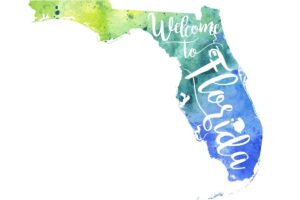Writer: Joey Garrand
 2 min read September — While newcomers to Florida are immediately welcomed upon arrival by sunshine, pristine beaches and lively cities and towns, transitioning to the state’s advantageous tax structure can be a remarkably difficult challenge, specifically for individuals who have multiple residences.
2 min read September — While newcomers to Florida are immediately welcomed upon arrival by sunshine, pristine beaches and lively cities and towns, transitioning to the state’s advantageous tax structure can be a remarkably difficult challenge, specifically for individuals who have multiple residences.
“What is not to love in South Florida? We have incredible weather and it’s a business-friendly state when it comes to taxes. South Florida has such a diverse community and marketplace,” Christine Gagnon, Palm Beach practice leader and partner for EisnerAmper, told Invest, reflecting on the booming local market and significant migration to Florida.
However, as Gagnon noted, many of these individuals and families moving to Florida are experiencing issues when it comes to being classified as a Florida resident for tax purposes. The first test of residency is domicile. “Changing domicile is a complicated process.”
Gagnon and her peers stressed the importance of planning a change in domicile well in advance and expediting the process.
While an individual may have multiple residences, they can only have one domicile. An individual’s domicile is their primary home (the home where they have established most of their key personal and business connections). If an individual has homes in both Florida and New York but their domicile is in New York, they will pay New York taxes on their income.
The burden of proving a change in domicile is a responsibility of the taxpayer and there are a great number of factors that are considered when applying for a change. The number of days spent in a state, home furnishings, family events, local purchasing patterns, addresses on accounts and even a last will and testament, among other things, will affect acceptance or rejection. Audits normally review a three-year window.
The second test of residency is the statutory residency test. Even if one has changed their domicile, but they maintain a permanent pace of abode and spend more than 183 days during the year in a particular jurisdiction, they will be considered a resident of that jurisdiction for tax purposes. Any part of a day is considered a day for purposes of the 183 day test.
In moving to Florida, it is crucial for people to sever as many connections as possible with their old location and establish as many connections as possible within the new community. Otherwise, Florida’s beneficial tax structure will not be accessible.
Barry Gould, Florida partner in charge for EisnerAmper, shared an example with Invest: of how intentional and precise individuals must be when changing their domicile. “While working with a client who was looking to relocate from New York to Florida, we were overly cautious in the documentation to ensure that we were clear and convincing that this would be her primary residence. For instance, we had her take pictures before her move of everything from furniture to artwork and family pictures. Once she settled in her new Florida house, we had her take new pictures to support her change of residency. In addition to the basic suggestions, we also recommended she get an app that tracks where she spends her days since she did travel back and forth from New York. This helped manage her days in each state she visited.”
Director of State and Local Tax for EisnerAmper Mitchell Novitsky added the following note of caution regarding changing one’s residence from NY to Florida for tax purposes, “It is not what one thinks or what one’s diary reflects, or even what might appear logical, it is about what one can prove. On audit, the burden of proof is on the taxpayer that a change of residence has occurred, and audits can be very intrusive. They will ask for phone records, credit card receipts, and your whereabouts on a daily basis.”
“There is no partial change of residence. It must be complete,” Novitsky stressed.
In moving to Florida, it is recommended to file a Florida declaration of domicile as soon as possible. Individuals should also apply for the Florida homestead exemption, register to vote in Florida, get a Florida driver’s license and change their primary doctor, amongst other things.
For more information regarding a change in domicile, visit: https://www.eisneramper.com/
